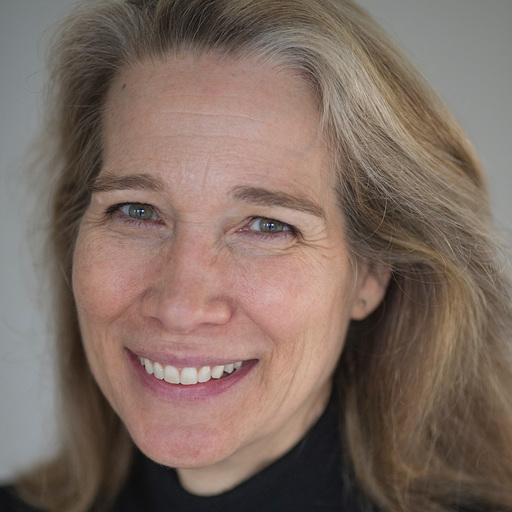I have founded a company called AboveBoard which launched on October 19, 2020.
This will come as a surprise to many who know me: I am supposed to be retired. I certainly didn’t expect to launch a brand new venture at this stage. So why this company, and why now?
I am lucky to have had a great career as a serial entrepreneur that has taken me a long way from where I began: after starting out in tech as a secretary 30+ years ago, I went on to found three companies and lead two others before stepping down in 2018 to care for a daughter who was losing a 5-year battle with Lyme disease. I just couldn’t be a good Mom and a good CEO—and Mom wins. So I transitioned into the classic executive “retirement” of serving on boards and advising startup CEOs. It was enjoyable work, and as my daughter started to recover I expected to continue on that track. Throwing myself into a new venture is a (happy) surprise.
Why do it again? I feel called. AboveBoard represents both an enormous market opportunity and an expression of my deepest-held personal values.
Forging a clear path
I founded AboveBoard because we have a clear path to creating a fundamental shift in the dynamics of executive hiring, one that is way overdue and will have far-reaching social impact.
AboveBoard addresses a gaping chasm in a huge market. Today, when a company decides to hire an executive or board member, there are only two options: do it themselves or hire a retained executive search firm. Either way, it’s a closed process with no transparency: those roles aren’t posted on LinkedIn or made public in any way. Retained search (or headhunting) is a great model for some situations, but there’s no reason for it to be the only available option. There is tremendous opportunity in offering a new approach with a new value proposition.
And, it turns out, this lack of hiring options is directly tied to an immediate and pressing need: diversity. In the past few years demand from companies to interview more diverse slates of candidates has been growing, and it’s reaching a new peak. It turns out that the current lack of diversity and the lack of alternatives in search are actually the same problem!
"If we want a different result, we’ll need a different approach."
How does that work? Companies that recruit directly reach out to their networks, and headhunters reach out to their networks, and both of those networks are (unintentionally) exclusionary. People tend to know people who look like them, and since neither companies nor search firms are diverse, their networks aren’t either. I had plenty of personal experience with this in my years leading and hiring at my companies—even when businesses are strongly motivated to hire for diversity, it’s hard to translate that intention into action. If we want a different result, we’ll need a different approach.
A growing demand for diversity
I came to understand all of this while I was Chairman of Thrive TRM. Thrive is a SaaS platform used by executive recruiters inside search, private equity, and venture capital firms as well as large corporations. It was started by True Search, a crazy successful search firm focused on the growth ecosystem that I had known since their founding as a client and candidate. I had enormous respect for True: the firm is growing by bringing rare innovation to an otherwise stale industry, and making smart investments in initiatives like Thrive. The firm’s co-CEOs Brad Stadler and Joe Riggione are tremendously successful, big thinkers who know their industry inside-out and think about it in a uniquely innovative way while staying humble and down to earth. As Chairman of Thrive, I spent a day a week at True’s headquarters, and I learned executive search from them, from the inside.
Working with Brad and Joe, as well as Reed Flesher and the entire team at Thrive, I came to understand the scale of the opportunity. And with that realization, the stars aligned: my daughter was recovering, I loved working with the True team, we had identified an enormous market opportunity and a compelling offering, and it tackled an issue I felt strongly about. We enlisted two outstanding engineers from the Thrive team, John Parsons and Marni Duffy, to build the product, and I started selling.
"As the backdrop for this new venture grew into a broader national reckoning, I could feel the threads of my personal, political, and professional lives coming into alignment."
Then George Floyd was murdered. Christian Cooper was profiled for birding in Central Park. And countless similar stories rose into the general public’s awareness all at once. Due to COVID we were all stuck in our homes with no distractions or excuses, and for the first time, white people couldn’t look away. Many, I believe, began to genuinely recognize systemic racism that they had long looked past. As the backdrop for this new venture grew into a broader national reckoning, I could feel the threads of my personal, political, and professional lives coming into alignment.
"I learned early that real diversity is complicated"
I grew up on the boundary between Bed-Stuy and Clinton Hill in Brooklyn, New York, in the 60s and 70s. My block was white, Korean, and Indian, but sat within an otherwise all-Black neighborhood. I learned early on that real diversity is complicated, never as simple as a stock photo of a Black and a white toddler holding hands. As a teen, I was the only white girl on my city basketball team, and at 6’1” and blonde I really stood out. My teammates called me “light bulb” and looked out for me. We had mutual trust and a strong bond. But I also witnessed disturbing incidents that revealed the subtle, and not-so-subtle, ways that my Black friends suffered fundamental injustice.
I remember one Fourth of July when the uncle of an Italian American family a couple of houses over pulled into our alley in his patrol car and opened up a trunk full of illegal fireworks that he’d collected for his nieces and nephews. He laughed about having taken them from kids in the neighborhood. As a pre-teen I had a strong sense that something was very wrong with that—I didn’t understand it fully, but like all children, I could sense the injustice. I knew that the rules weren’t being equally applied.
A decade later I witnessed the logical conclusion of those unspoken rules. I was coming home late on the subway and switching trains at West 4th Street. The subway in those days was gritty and crime-ridden, and we used to carry a dime and a token in our socks to call and ride home in case we were mugged. I never was. But that night, when I passed through the empty level at the north end of the station, I witnessed a terrible thing. A cop with a billy club in his hand stood behind a Black man on his knees, handcuffed, facing the white tile wall. I heard the thud as he struck him. I remember vividly the metallic taste of adrenaline in my mouth and the overwhelming feeling of powerlessness—all I could do was run.
Righting problematic patterns
Most of the economically successful white people I have worked with abhor the idea of racism and other forms of discrimination, but those issues are purely theoretical to them. Racism happens at a distance, in other people’s communities, far from the boardroom. Ironically, it’s easier to convince yourself that discrimination isn’t present when—as a direct result of discrimination—there are no people from underrepresented groups present.
"These things live on a spectrum, all rooted in the same problematic patterns of unequal access to power."
I see the structural forces that exclude people from influential positions in business as exactly the same as the forces that I saw at work in the streets of New York when I was young. Both apply different sets of rules for different people. Working in the white male-dominated tech startup world, I’ve encountered sexist bias: an unwelcome hand on my knee, being mistaken for a customer service rep, being asked to get coffee, and, of course, being paid less. While I would never compare what I’ve experienced with what it’s like to be Black or brown in America, these things live on a spectrum, all rooted in the same problematic patterns of unequal access to power.
Happily, we know that diverse teams are more effective than homogeneous teams. Installing leaders with different backgrounds serves shareholders, employees, and the broader society—even if getting there is easier said than done.
For example, the last company I joined had a homogeneous white, engineering team. The reasons for that were complex, but there were some obvious issues. One was that the standard hiring screen included: “Would you like to have a beer with this person?” That question doesn’t sound like it’s “about race,” but most people would rather have a beer with someone just like them; these biases are so natural that most of us don’t even realize that we're discriminating. They’re the foundation of a system that has different rules for different people while pretending to be meritocratic.
"Happily, we know that diverse teams are more effective than homogeneous teams."
Thankfully, we know the solution: research shows that hiring executives who are on the flip side of these experiences bring the issues to light and leads to cultures that do, in fact, value peak, holistic performance.
And that is why what we’re doing at AboveBoard matters so much. We have the opportunity to create impact at multiple levels: we help executives of all backgrounds get the jobs they want and deserve, we enable companies to hire the very best talent wherever it is, that talent drives the companies’ performance—and all of that together changes the world.
A time for immense change
With the right solution at the right time and True on our side as a co-founder, we’ve come out of the blocks strong. Even before launch, we had five clients sharing their opportunities with our members: Warburg Pincus, Summit Partners, Audax Group, Insight Partners, and WW (one step from Oprah!) in addition to True. In our first 10 days live, over 1,000 execs joined, 51% of whom are female or an underrepresented minority and over half of whom are in the C-suite. If you’re an executive reading this, especially a woman, Black, or Latinx executive, I hope you’ll join to be connected with opportunities from companies like Pinterest, GitHub, Ford, Walmart, and Twitch.
More than ever before, I am bringing my best full self to this company. It is special for me, weaving the threads of my life into a powerful rope. We are living through immense change, and I’m old enough to know that change comes fastest when it comes from the top. When we transform the face of leadership to reflect the face of America, and beyond, we will be transforming companies from the inside and creating a ripple effect that has the potential to change society. My mission is to drive AboveBoard’s success and create the change that I need to see in the world.









